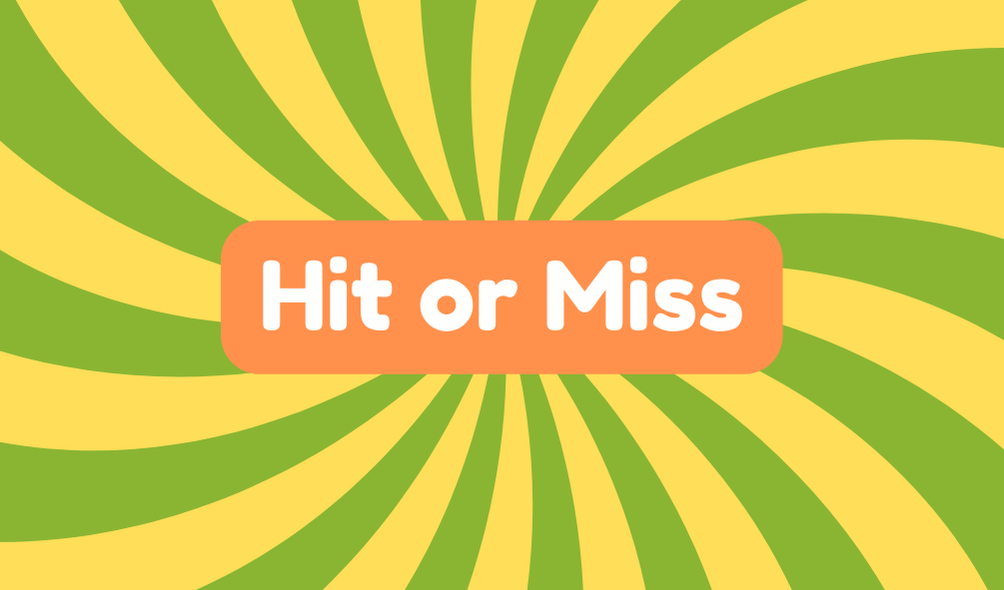"Hit or miss" refers to the unpredictable nature of outcomes, where success isn't guaranteed. The term likely comes from the idea of hitting or missing a target, symbolizing life's inconsistent results. For example, you might say, "The new cafe's food is hit or miss." This phrase remains relevant today, highlighting the uncertainty in experiences like dining or entertainment. It's a reminder of how often life doesn't go as planned, encouraging you to manage your expectations. Understanding this concept better can enrich your perspective on everyday situations, opening up further insights into its broader implications.
Synonyms
When you're describing something as "hit or miss," you might consider using synonyms like "erratic" or "variable." These words effectively convey the unpredictable outcomes associated with a situation that lacks consistency. Engaging in synonyms exploration can help clarify your thoughts. Here are a few alternatives:
- Inconsistent – It highlights a lack of reliability.
- Uncertain – This term emphasizes the unpredictability of outcomes.
- Fluctuating – It captures the sense of change over time.
Using nuanced terminology can enhance your expression, but remember: while these words might lend clarity, they also come with their own baggage. Exploring synonyms can enrich your vocabulary but requires careful consideration. Familiarity with these terms guarantees you accurately reflect the unpredictability inherent in various experiences, steering clear of potential confusion.
Example of Sentences
Using "hit or miss" in everyday conversation can effectively convey the unpredictability of various experiences. When chatting about dining experiences, consider these examples:
- "That new pizza place is a bit hit or miss; sometimes the toppings are fresh, and sometimes they're soggy."
- "I find the service at that café to be hit or miss; it really depends on who's working."
- "When trying new restaurants, it's often a hit or miss adventure that keeps you on your toes."
In casual conversation, you might find yourself using "hit or miss" to express the risks of dining out. It highlights that you never really know what you'll get, which can be both exciting and frustrating. So, keep your expectations realistic!
Origin
The phrase "hit or miss" stems from the concept of hitting a target, which signifies a successful outcome, versus missing it, representing failure. This expression illustrates the fluctuating nature of human experience and reactions. When you reflect on cultural interpretations, you'll see how widely varied the emotional responses are to events labeled as "hit or miss." It resonates with an acceptance of unpredictability in life, highlighting that not everything meets our expectations. Success can depend on numerous factors, including mood and circumstances. Recognizing this assists in understanding life's erratic nature. So, when you encounter a "hit or miss" situation, consider it as a lesson in steering through the uncertain waters of daily experiences rather than a definitive judgment of worth.
Collocations
"Hit or miss" often pairs with various nouns and adjectives, creating phrases that convey specific contexts. By understanding these collocations, you can paint a clearer picture of random outcomes in your life. Here are three common examples:
- Hit or miss reviews: These capture the unpredictable experiences we often encounter in products or services.
- Hit or miss events: This indicates that some gatherings might dazzle, while others may fall flat.
- Hit or miss decisions: This reflects the uncertainty inherent in choices we make daily.
Navigating a world filled with unpredictability is challenging. Recognizing how these phrases frame your expectations helps you manage unforeseen outcomes more effectively. Embracing the random nature of life allows for both innovation and resilience amid uncertainty.
How to Use in Everyday Language
Recognizing how "hit or miss" phrases can shape your perspective helps you incorporate them naturally into everyday language. Using "hit or miss" expressions can add a layer of unpredictability when discussing various topics—whether it's the new café in town or that latest blockbuster movie. You might say, "The service at that restaurant is hit or miss," allowing you to convey uncertainty without sounding overly critical. By incorporating unpredictability in language, you invite listeners to share their experiences, creating engaging conversations. However, be cautious not to overuse these phrases; doing so can dilute their impact. Instead, sprinkle them in thoughtfully, and you'll find they enhance your dialogue, making it feel more dynamic and relatable.
Why Is It Still Relevant Today?
Unpredictability in everyday experiences keeps the phrase "hit or miss" relevant in today's fast-paced world. You navigate cultural adaptations and modern applications daily, and this phrase captures the essence of uncertainty in a rapidly changing environment. Recognizing a "hit or miss" scenario allows you to manage expectations realistically.
| Context | Example | Importance |
|---|---|---|
| Dining | New restaurant | Food quality varies, reflects culinary experimentation |
| Entertainment | Movie reviews | Audience reactions can differ greatly depending on preference |
| Daily Life | Weather | Unpredictable forecasts impact plans continuously |
This understanding fosters resilience and prepares you to embrace life's inconsistencies, truly reflecting how "hit or miss" remains a crucial expression today.







